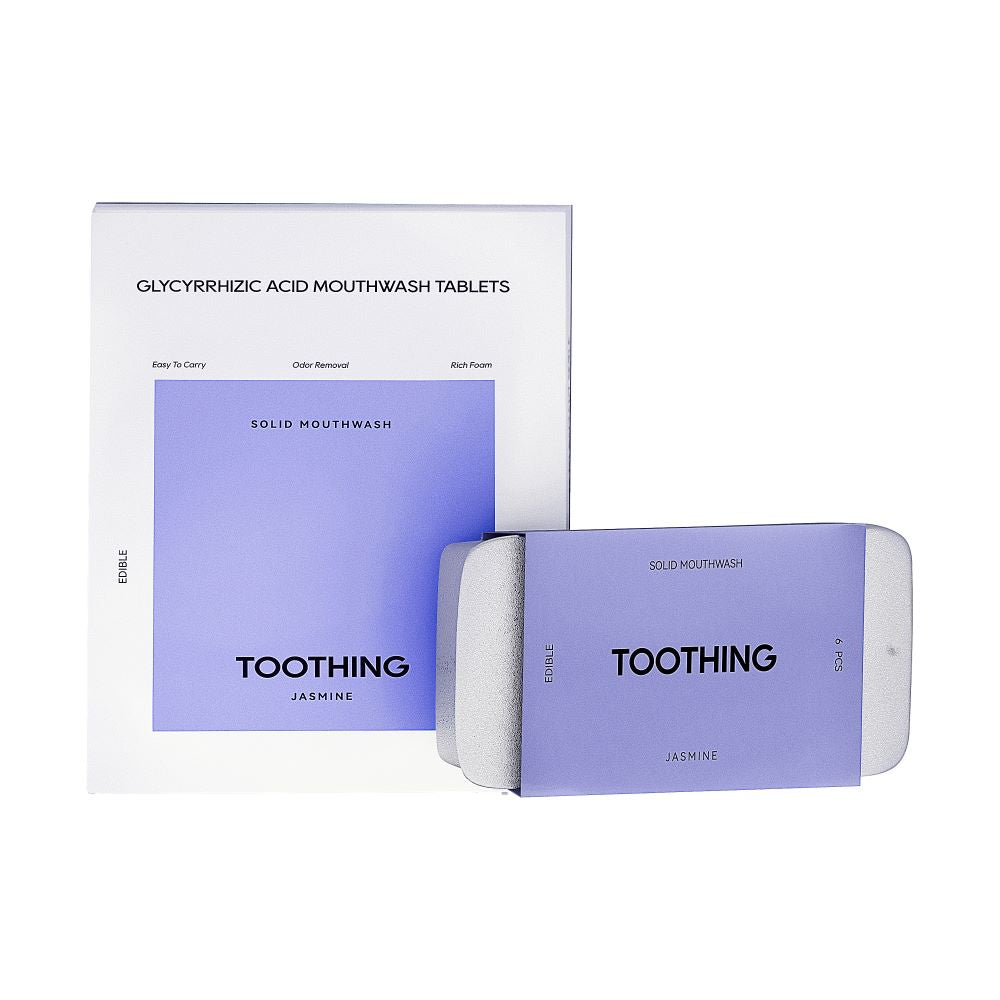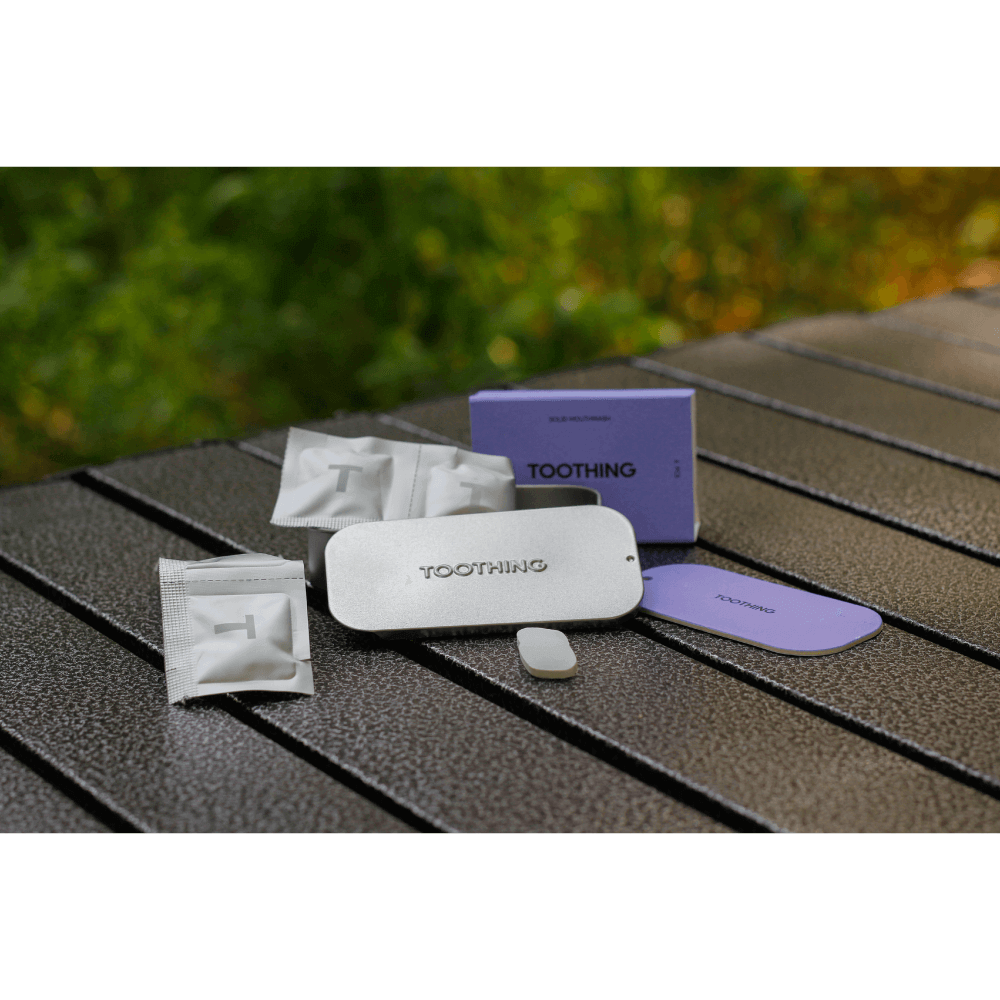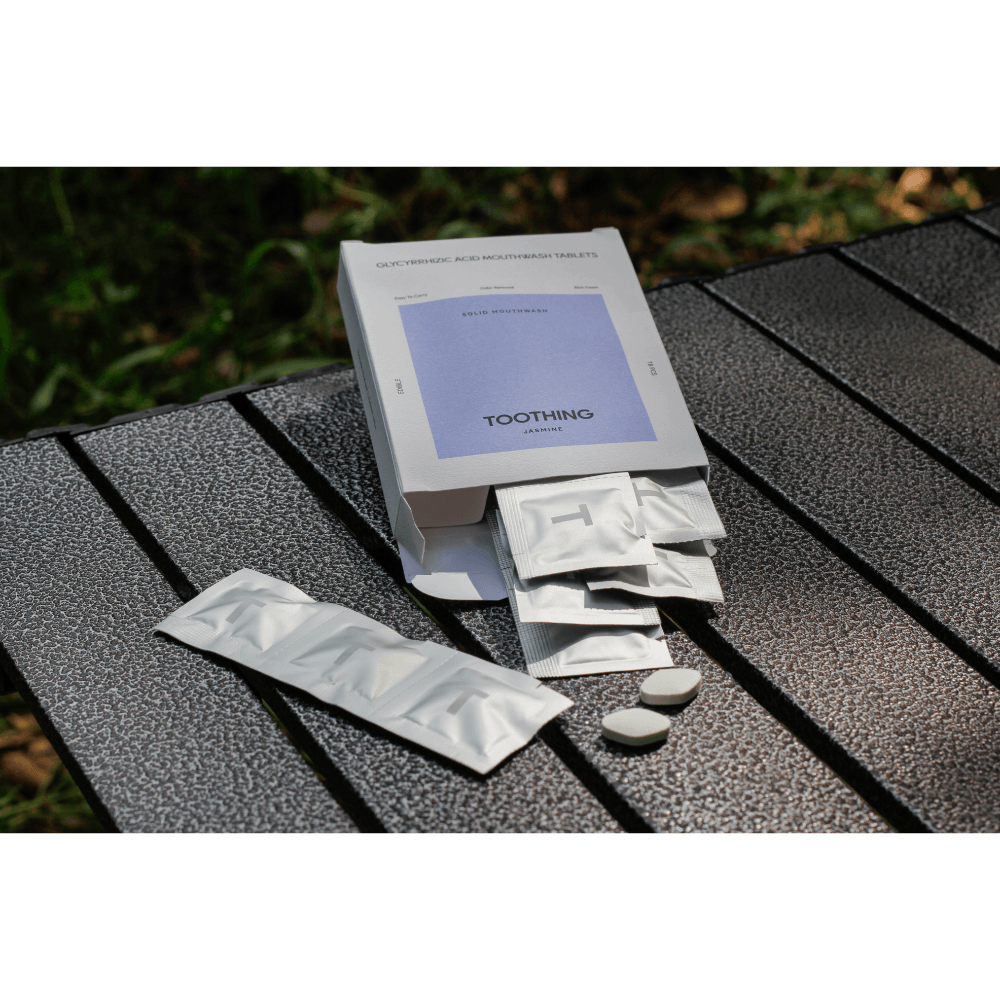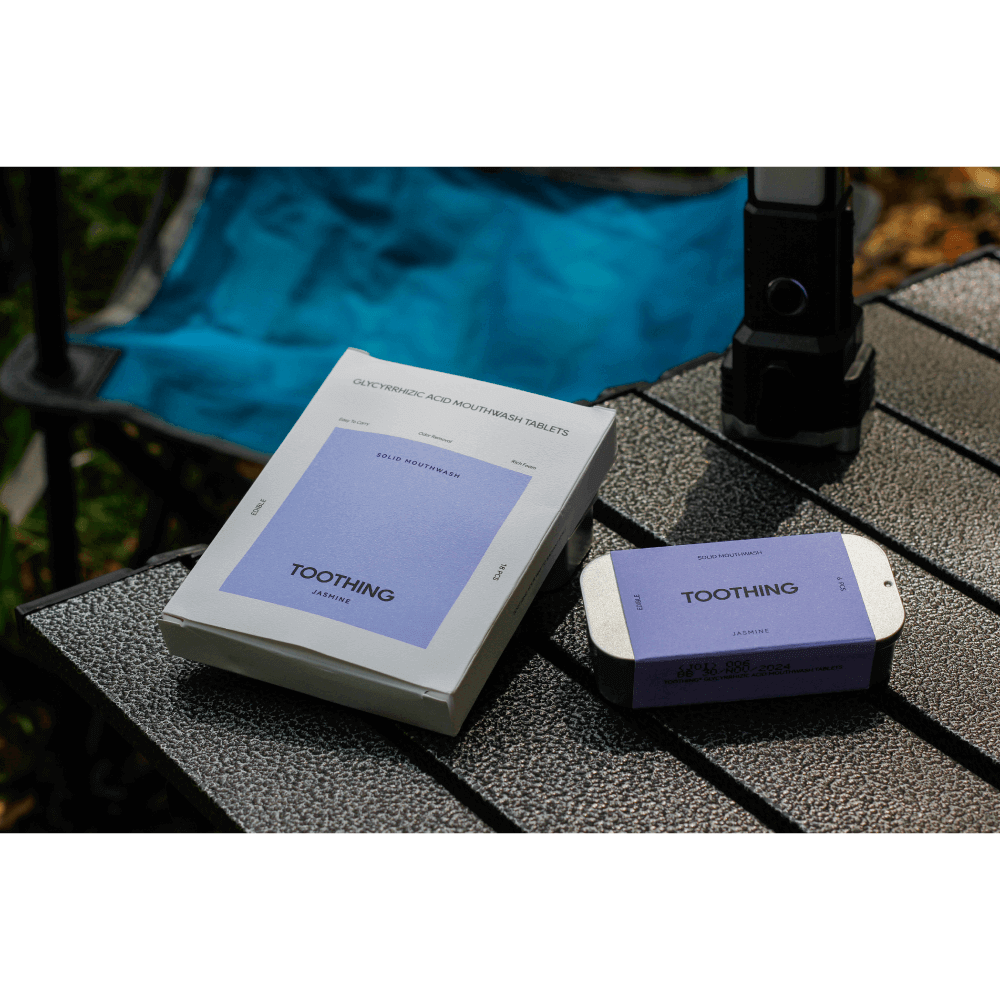
A Comprehensive Guide to Gum Diseases and Their Treatments
Understanding gum disease and the best ways to care for your gums is essential for a healthy, lasting smile. This guide explains four common gum conditions: gingivitis, periodontitis, receding gums, and acute necrotizing ulcerative gingivitis (ANUG). It describes their causes, symptoms, and effective treatments.
Read on to learn how gum diseases develop. Discover how incorporating Toothing portable mouthwash tablets into your regimen can enhance your dental health.

Gingivitis: The Starting Point of Gum Disease
Gingivitis is the mildest form of gum disease and the most common. It forms from plaque, a sticky layer of bacteria that builds up on teeth, especially near the gums.
Causes:
- Poor oral hygiene
- Smoking
- Hormonal changes
- Certain medications
Symptoms:
- Redness, tenderness, and swelling of the gums
- Bleeding, especially when brushing or flossing
- Persistent bad breath
Treatment Options:
- Good Oral Hygiene: Regular brushing and flossing.
- Antiseptic Mouthwash: Chlorhexidine or essential oils like eucalyptol to reduce bacteria.
- Fluoride Toothpaste: Strengthens enamel and reduces plaque buildup.
For a simple and gentle choice, Toothing portable mouthwash tablets use xylitol. This avoids the harshness of alcohol-based rinses.

Periodontitis: A Deeper Infection
If untreated, gingivitis can progress to periodontitis, affecting deeper gum tissues and the bone.
Symptoms:
- Gum recession, deep pockets between teeth and gums
- Loose teeth and sometimes pus discharge
- Persistent bad breath
Treatment Options:
- Prescription Antibiotics: Doxycycline or metronidazole.
- Antimicrobial Mouthwashes: Chlorhexidine-based for bacteria control.
- Scaling and Root Planing: Deep-cleaning to remove tartar below the gum line.
Toothing portable mouthwash tablets are a convenient option to help prevent plaque buildup between dental visits.

Receding Gums (Gingival Recession)
Receding gums can result from untreated gum disease, vigorous brushing, or physical trauma.
Symptoms:
- Tooth sensitivity, especially to hot or cold foods
- Longer or more exposed appearance of teeth
- Uneven gum line
Treatment Options:
- Desensitizing Toothpaste: With potassium nitrate or stannous fluoride.
- Natural Treatments: Aloe vera gel for soothing effects.
- Fluoride Gel: Helps maintain gum health and reduces sensitivity.
Using Toothing portable mouthwash tablets every day can help stop plaque. This will keep your mouth clean without being harsh.
Acute Necrotizing Ulcerative Gingivitis (ANUG): A Severe Infection
ANUG, or "trench mouth," is a severe form of gum disease caused by poor hygiene, stress, and weakened immunity.
Symptoms:
- Intense pain and bleeding gums
- Ulcers and tissue necrosis
- Foul odor
Treatment Options:
- Antibiotics: Amoxicillin or metronidazole for infection control.
- Antimicrobial Mouth Rinse: Chlorhexidine to manage bacterial spread.
- Professional Care: Regular dental check-ups and a balanced diet.
Using Toothing portable mouthwash tablets in your daily routine can help stop bacterial growth. They have a gentle xylitol-based formula.

Maintaining Your Gum Health
Preventive care is important for gum health. This includes regular dental visits, a balanced diet, and good products like Toothing portable mouthwash tablets.

References
- Van der Weijden, F. A., & Slot, D. E. (2011). Efficacy of homecare regimens for mechanical plaque removal in managing gingivitis—a meta-review. Journal of Clinical Periodontology, 38(S11), 108-123.
- Luo, X., Li, J., & Yao, S. (2021). Association of periodontitis with circulating inflammatory biomarkers and cardiovascular risk. Journal of Clinical Periodontology, 48(4), 550-563.
- Schroeder, H. E. (1985). The periodontium and periodontal disease: Periodontal pathology. Periodontics, 5(1), 1-8.
- Listgarten, M. A., & Loomer, P. (1985). Microbial composition and patterns of antibiotic resistance in acute necrotizing ulcerative gingivitis (ANUG). Oral Microbiology and Immunology, 5(6), 323-329.











